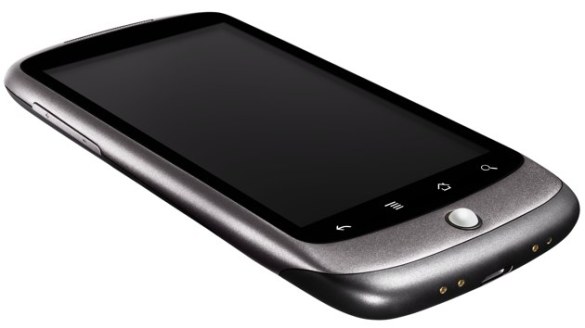
Despite its revelation prior to the show’s launch, CES attendees are abuzz about Google’s new Nexus One smartphone and its potential impact on the smartphone market. Still, call us crazy, but the moniker of “iPhone killer” it’s been awarded by some (how original!) just doesn’t seem to fit – perhaps “Motorola Droid” killer is more appropriate.
Don’t get us wrong: There’s much to love about Google’s first branded mobile device, from its solid tech specs to the way it coaxes more out of the Android operating system. (Not to mention options to buy the gadget unlocked, and without the pain of being railroaded into a two-year cell phone plan, assuming you can stomach the $530 asking price and pricey voice and data plan.) But realistically, the phone is more notable for its emphasis on digital vs. physical media and way in which it seamlessly integrates with Google services than anything else – features which may blunt its ability to take on Apple’s little phone that could.

Perhaps more notable for everyday users is what the smartphone signifies, as Google’s first attempt to bypass retail and sell direct to consumers. While the Droid makes a fine hardware showpiece, the Nexus One makes an even finer one – and provides a perfect excuse for the search giant to muscle its way into the world of online commerce. It’s an intrigung strategy: Get users hooked on free, Google-branded services, then use their ongoing dependence to shift hardware units which easily integrate with these programs, making it harder to sever ties down the road. Not only does it help build mindshare and loyalty – it also ensures a captive audience are core following that additional apps, premium services, and devices can be sold to down the line.
Whether the Nexus One ultimately rise to prominence in the crowded smartphone market, let alone unseat Apple’s iPhone dominance remains to be seen – and may prove largely irrelevant. All Google needs to do now is gain a toehold in the field, and raise awareness for its plans to empower shoppers, undercut competitors on every field from GPS navigation to word processing and put Android at the forefront of end users and third-party developers’ minds. Got an opinion on whether the company’s plans will succeed, and there’s room for yet another premium device so soon after the Droid’s launch? Reach out and share your thoughts in our comments section – we look forward to hearing whether you think all the buzz is much ado about nothing, or signifies a potential seismic shift in the mobile communications business.
Editors' Recommendations
- A new Google Pixel Tablet is coming, but it’s not what you think
- The most common Google Pixel 8 problems and how to fix them
- The 6 biggest announcements we expect from Google I/O 2024
- Google just released the first Android 15 beta. Here’s what’s new
- Google Photos’ best AI editing tools will soon be free for everyone


